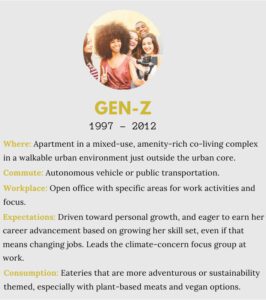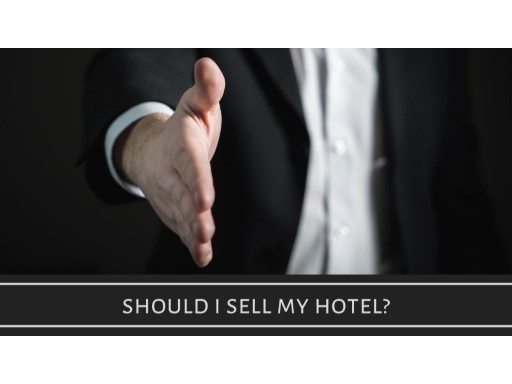Hotels vs Airbnb
An Interesting Battle Is everyone having a love affair with Airbnb? This “a place for a good deal” company is a rapidly growing big deal in the travel industry and is the biggest competition to the hotel industry.
Is everyone having a love affair with Airbnb? This “a place for a good deal” company is a rapidly growing big deal in the travel industry and is the biggest competition to the hotel industry. Given a choice between a hotel stay and an Airbnb home, the majority of people would pick a hotel every time. From the beginning, hotels are built around the visitor. From interior design to facilities and services. Airbnb’s are often adapted from private homes. At the beginning of the Airbnb phenomenon, why did people prefer to pick a hotel stay versus Airbnb accommodation? In a word, services. Services guarantee tourists and any business traveler a pleasant stay without any muss and fuss.
What is an Airbnb? Basically, it is another form of a hotel, but it’s most likely someone’s own home or their own apartment (given out for rentals).
However, when it comes down to an Airbnb vs. Hotel, more and more people opt nowadays for an Airbnb, because it’s cheaper and offers more flexibility. Airbnb’s tend to cost less than hotels while offering more space and flexible check-ins and check-outs. The basic cost saving factor is just one of many reasons why Airbnb’s are getting trendier than hotels. There are many reasons why Airbnb is better than a hotel. But is this true? Will hotels be out or is there a healthy balance between the two?
Let’s look at Airbnb facts:
- Airbnb’s often offer a kitchen and therefore the option to eat in. This means customers have to go grocery shopping. So, from one side, this is much cheaper than being forced to go to restaurants all the time and dining out. It also gives the client the chance to experience the shopping aspect of the local life, and go to delicious local markets.
- By staying in an Airbnb, you get an idea of the local lifestyle. The feeling of living in “your own flat” inspires you to become more like the locals.
- The Airbnb host can provide local tips.
- Big family or friend groups can stay in Airbnb’s, which means that there is no need for extra rooms as you would need it, in case a group would want to travel together. Again, this attractive cost saving option attracts more and more people to use Airbnb’s, especially when a group of friends or family are planning a trip. Or, some events or parties are planned, like someone’s bachelorette party, birthday parties or any other events attended by a group of people. Therefore, Airbnb’s are very much loved by the young generation who cannot afford hotel prices.
- Searching for an Airbnb can often require more research and time. Hotels have visible addresses that are easy to look up and find. Airbnb often provide an estimated location that is not immediately clear to pin point whether its location is optimal. One has to read the description and trust the hosts words and estimates. (Airbnb)
- There are good surprises and bad surprises. Reviews of hotels and Airbnb’s can vary but more often than not, hotels have a lot more reviews to base a decision. Many Airbnb’s are newly and recently listed with few reviews and sometimes few pictures.
We understand that Airbnb’s are mainly attractive from a price point. They offer customers to dive into the local world from a different perspective to discover the real lifestyle and to socialize more with the locals. This is fun when it comes to a young generation who a) cannot afford hotel prices to discover a city or country b) want to organize events or stay with several friends or the family c) want easy going when it comes to traveling and are open to take care of everything like in an own “home”.
Advantages of Hotels over Airbnb
Hotels have their advantages and unique selling points that guarantee their importance to the travel industry. Let’s look at a few points of how hotels are unbeatable. Here are a few reasons why clients should rather opt for Hotels than for Airbnbs:
- Hotels are not meant to be home-sharing, so you keep your independence, while benefiting from common food and beverage, hospitality, Gym, Spas and many other services.
- Hotels offer a safer and less complicated solution, when it comes to travel circumstances like: delayed flights and your arrival is very late, public transportation, taxis, buses or any option of help that isn’t available to reach to your destination in time. At this point, the easiest thing to do is to then get a hotel. When using an Airbnb, these circumstances might make it very difficult to get to your Airbnb destination and check-in, in time. Meanwhile, hotels are generally easy to find and you have the availability to check in 24/7, at whatever time you might arrive. Additionally, if unforeseen changes occur to your Airbnb, booking another Airbnb on the same day can be difficult. Relying on the Airbnb host to accommodate same day requests quickly could be unlikely.
- Consistent quality: A few unlucky guests have complained that Airbnbs that hosted them were quite different from the experience they had seen on their listings. Hotels’ quality doesn’t waver; what you see on the brochures is likely what hotels give in real life.
- For clients, being on a business trip, a hotel is more convenient and comfortable when it comes to practicalities and services. A business individual will not have time to iron his shirt himself before a meeting, or cook himself lunch. He will also not be interested in local discoveries being on a rather professional mission. Airbnb’s will not offer the suitable services that a business client will require. Meanwhile a hotel offers all the services and comfort required, to meet the needs of a business client by easing his stay the best possible way. No time needed to look after the room, clean up behind himself or do the kitchen before checking out.
- One major advantage is that a hotel will usually offer even business options like conference rooms or other facilities for meetings, trade shows and conventions, that an Airbnb won’t have.
- Even so called “high maintenance” people, being used to luxury and dolce vita, will prefer a hotel, where they can drop their bags just after arrival and run to the beach or to simply have fun wandering around without any responsibility as the hotel takes care of everything.
- Easier cancellation process: Hotels have a more flexible cancellation process than an Airbnb. This makes it easier for guests to commit to hotel bookings knowing that they have a higher chance of backing out with hotels.
- And let’s be honest, the world of hotels and its beauty, let us dream and make us feel welcomed and enjoy our holiday in the most magical way!
- Hotels are usually optimally located, near tourist attractions and well connected to transportation and main roads. Airbnb’s can often be found in residential areas that are not immediately easy to get around without a car. Secure parking is also not necessarily guaranteed by an Airbnb.
- With hotel brands one can often choose and know what to expect in terms of quality, service and feel of a hotel. Travelling to multiple different countries, one may prefer to stick to a brand that one knows that guarantees a consistent experience.
- Airbnb’s often require large security deposits in comparison to Hotels. There are also often additional cleaning fees with Airbnb’s that are already priced into a Hotel room. With hotel prices, what you see is what you get. With Airbnb, there are usually additional add-on expenses.
- Communication with Airbnb hosts may not always be reliable. Often times the communications are done via texts and there is no immediate phone number to call. If something goes wrong, there is no front desk, reception or management to talk to that can accommodate your request immediately. For a quick check-in and check-out, Hotels can also be much more reliable.
- With Airbnb, one often has to rely on the availability dates of the home. If a place is available it is centered around the home and host and not the guests schedule. Dates may not be suitable. One often has to book an Airbnb months in advance and schedule a trip around the homes availability to get the place.
- With hotels one can usually rest assured that it can be booked days in advance or even on the day of arrival. If one doesn’t plan well ahead and isn’t quick enough to book an Airbnb home, it may be gone and one likely has to look all over again for another place. Then one place may have the right location but isn’t as charming and another place is charming but not in a good location. With hotels, one can usually find the perfect balance.
- Hotels usually offer better security, surveillance and valet services which Airbnb’s cannot often match. With a hotel one can be mostly assured that the premises are secured and that there are staff around in case help is needed.
These are only a few of many good reasons, why it would make sense to rather use a hotel than Airbnb.
Who is the winner? To make a long story short, both! And it depends pretty much on the clients’ personal choices and needs.
Whether a stunning hotel or a nice Airbnb Apartment, both options can work perfectly and are actually complementary other than really competitive.
What is your choice?
Get in touch to plan a sales strategy for your hotel. If you want to receive the latest deals, please subscribe to our newsletter below.
T +41 (0)61 564 07 40
info@alpineahotels.com
www.alpineahotels.com










